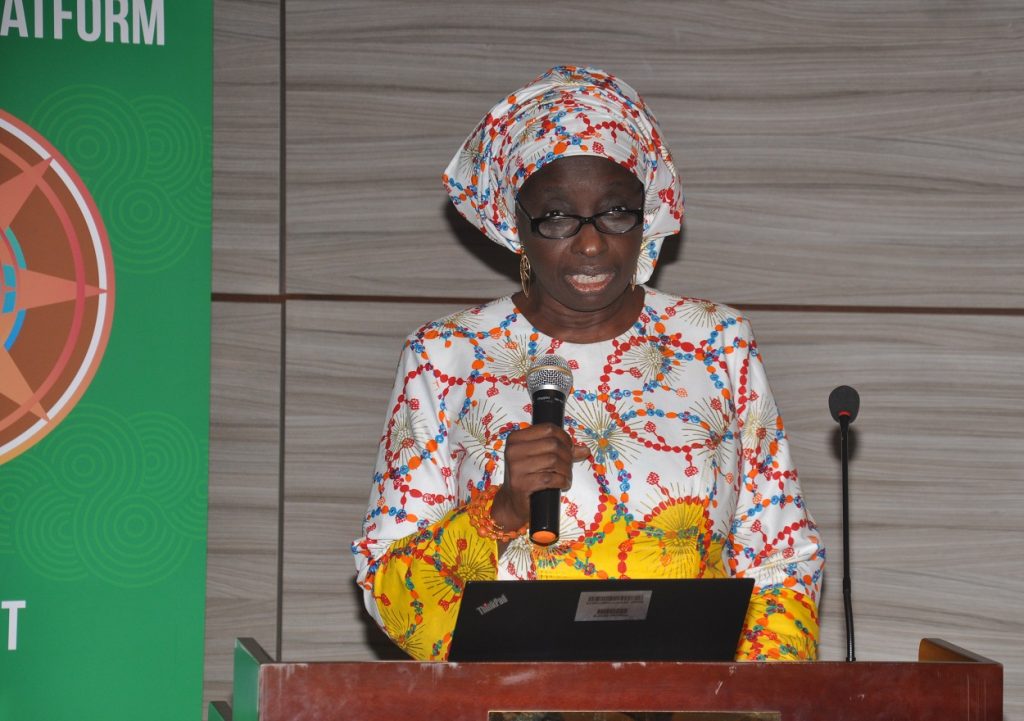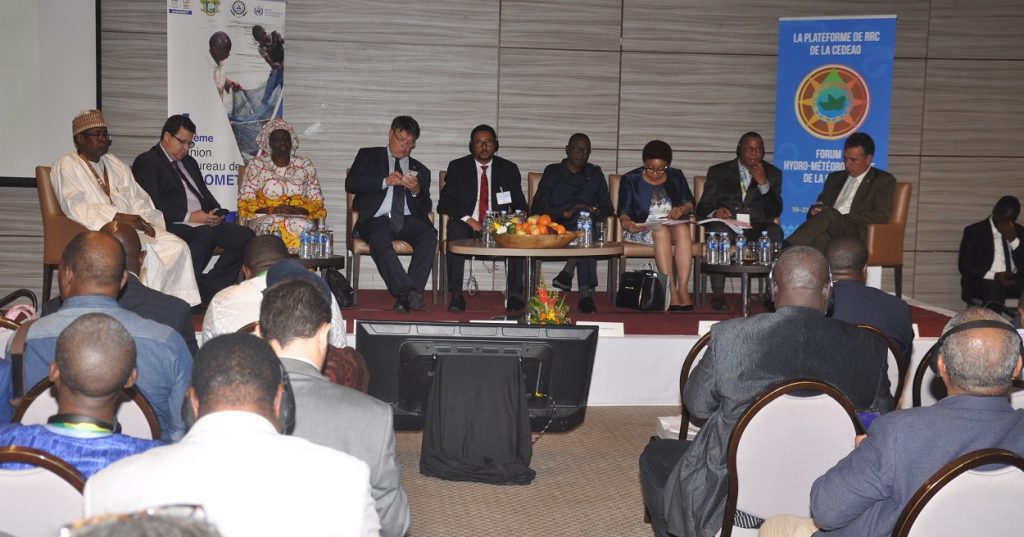ECOWAS forum urges modernisation of hydromet and disaster risk management services
 Abidjan, 21 September 2018. Representatives of ECOWAS Member States’ institutions, in conjunction with disaster and climate resilience building stakeholders, have urged for a modernization of hydromet and disaster risk management services in West Africa.
The meteorology, hydrology and Disaster Risk Reduction (DRR) stakeholders are also requesting in this regard, the scaling up of efforts by the development partners including the World Bank, European Union (EU), and other United Nations (UN) organisations, in line with needs and priorities expressed by ECOWAS, Permanent Interstate Committee for Drought Control in the Sahel (CILSS), River Basin Organizations as well as national governments in the region.
A set of far-reaching recommendations made at the end of their 3-Day regional hydromet Forum and DRR platform in Abidjan, Cote d’Ivoire on the evening of the 21st of September 2018, bordered on the need for firmer political commitment, resource mobilisation and allocation, a workable funding strategy as well as increased advocacy on reliable disaster data management best practices.
Specifically, the delegates who also comprise members of the Bureau of African Ministerial Conference on Meteorology (AMCOMET), requested the high officials of the ECOWAS Commission who were on hand, to bring their resolutions to the attention of the President of the Commission and of the ECOWAS Parliament “for endorsement and action”  They maintained that since there is an “increasing demand for customized weather, water and climate services to build resilience in communities and economies and provide effective early warning for the ECOWAS region” the modernization of every aspect of the entire value chain of hydromet systems and services with advanced weather prediction techniques, will bring innovation and engender a better response to end user needs in the ECOWAS region.
As part of the envisaged new hydromet order, the more than 200 participants recommended the promotion of a conducive environment for building and exchanging academic and research expertise as well as continued professional education on weather, water, climate and disaster risk reduction in the ECOWAS Member States.
Importantly, and in support of sustainable development, they urged the promotion of a “robust and meaningful gender mainstreaming and the inclusion of youth and community based organizations” in the design and implementation of integrated approaches for weather, water, climate and disaster risk management services.
They noted that the call for a sense of urgency in dealing with the regional hydromet needs, is in recognition that about 70 percent of disasters in the ECOWAS region are caused by severe weather and climate events whereas hydromet services are transboundary and multidisciplinary in nature.
Prior to the emergence of the recommendations, there were multiple high-level plenary sessions commencing with moderation by the ECOWAS Commission’s Director, Humanitarian affairs Dr. Florence Iheme and with corresponding panel discussions by selected experts and resource persons.
These were on themes such as the status of weather, water and disaster management services in West Africa, the integration of policies, strategies and institutions in support of effective early warning, financing whether, climate and early warning services, exchange of country best practices and lessons learnt on national DRR programmes, strengthening regional initiatives, projects and programmes, harnessing partnerships and private sector as well as an appraisal of the Sendai framework for monitoring and evaluation.
In the communique of the Forum read by the ECOWAS Commission’s Commissioner for Social Affairs and Gender Siga Fatima Jagne, the germane issues of safeguarding the environment and human lives in consciousness of the responsibilities of national governments, regional organisations and the people were highlighted.
Bringing the forum to a close, the Minister of Transport of Cote d’Ivoire Amadou Kone said this is now “the time to shift from words to action” He was supported at the podium by the Chair of the AMCOMET bureau and minister of agriculture and environment of Carbo Verde, Gilberto Correia Silva.
The Forum was also attended by the United Nations Resident Representative MR. Babacar Cisse, the World Bank Country Director Pierre Laporte, Executive Secretary of CILSS, Dr. Djime Adoum, the Secretary-General of the World Meteorological Organisation (WMO), Dr. Petteri Taalas, the African Union Commissioner for rural economy and agriculture Josepha Lionel Sacko as well as Head of Cooperation, European Union (EU) Michel Laloge.
Before rising, the participants stressed the important need for hydromet and disaster risk management services to meet the objectives of the ECOWAS DRR Strategy and ECOWAS DRR Plan of Action 2015-2030, ECOWAS Water Resources Policy, ECOWAS Environmental Policy, ECOWAS Agriculture Policy, ECOWAS Early Warning Strategy; the ECOWAS Hydromet Program, among others. |



